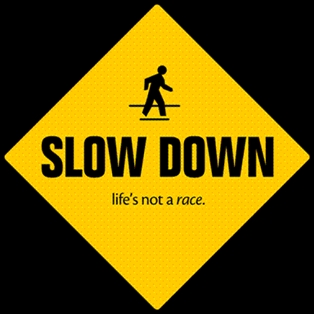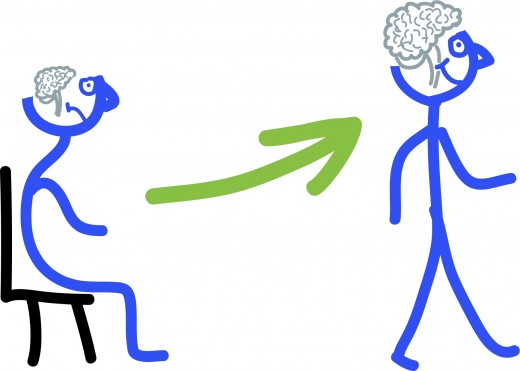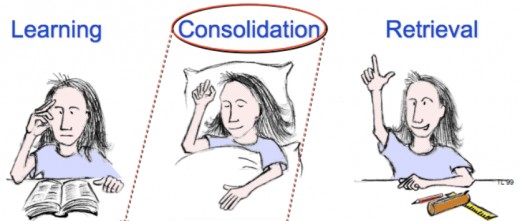Slowing Down The Percieved Passage Of Time As You Age
Live Your Life- You will grow; You will Age; And you will die

Introduction
This article discusses in detail at least ten ways to do this. In most cases they involve a change in the way you work and live. First of all the brain is programmed to remember only those things that are significant. So the first strategy is to make sure there are memorable events in your life. What is the use of your life if you live quarter or half the years of our life and waste the remaining. Always keep in mind to not let go priceless moments that can bring joy and smile to your face when you are old
Here is a summary of the strategies for slowing the perceived passage of time as you age.
Have significant goals that are meaningful to you.
This is a strategy of traditional time management as well. When you think about the past, what you recall are those significant things that happened – graduation, marriage, maybe a car accident or an illness and so on.
Goals that you establish are significant items and they are more easily transferred into you long term memory. But limit the number of goals.
Busyness is the enemy of both traditional and holistic time management. A few goals that are written down are best. Putting them in writing makes a bigger impression on your mind. You are more likely to remember them.
Work for shorter periods of time.
If you work on them in chunks of time rather than days on end, you have a better chance of recalling that time later. I usually recommend a maximum of 90 minutes at any one sitting. That way you have more starting times and ending times.
For instance, when you memorize a list of items, you usually recall the items at the start and the end, but not in the middle. So you are more aware of what you did after the fact.
What you are doing is making it easier for your brain to store the experience in long-term memory. Of course it has other advantages as well, since it increases your focus, reduces the number of interruptions, and makes you available to handle urgent priorities that tend to arise throughout your day.
So this is one strategy that satisfies both traditional and holistic time management.
Add variety to your life.
You should add variety to your life and avoid too many routines such as going to the same place with the same people at the same time each year.
Ten days of fishing off the same dock is not going to seem like ten activities to your brain. So don’t be a creature of habit. Mix it up a little.
Try different golf courses, vacation spots, theaters and so on. From a business standpoint, this tends to conflict with traditional time management, which promotes specialization, standardization, and an assembly line approach to getting things done.
Don’t multitask.

By this, I don’t mean you shouldn’t set the table while the kettle boils or send email while a document is being printed. In those examples, your mind is not trying to concentrate on two things at the same time. You are simply utilizing idle time.
But texting while listening to an audio recording or driving while on the cell phone or thinking about work while helping your child with homework are examples of dividing your attention between two activities. It is not conducive to getting either of them into your long-term memory.
Of course if you get into an accident as a result of talking on a cell phone while driving, you will remember that because it’s a memorable event. This doesn’t necessarily conflict with traditional time management as it is taught today, but it certainly conflicts with general practice.
It’s important to control your use of technology, not only because it facilitates and encourages multitasking, but researchers claim that being constantly connected to digital devices deprives our brain of the down time it needs to process information and consolidate memories.

Slow down.
Some people are actually addicted to speed. They hurry even when there is no need to, and they only succeed in increasing their errors and making other people nervous.
Speed is not conducive to long-term memories and the faster you go, the faster life seems to go. And of course it encourages unhealthy habits like eating fast food, driving faster, not listening properly and so on.
And it certainly increases our stress level. Here again, there is a conflict because most people want to work faster, not slower.
Be in the moment.
Always focus on what you are doing, not on what you are going to be doing next. Enjoy the moment.
Have you ever seen someone rushing down the street continually glancing at his watch? If you asked him the time, he probably couldn’t tell you without checking his watch again. He wasn’t looking at his watch; he was looking through it at the meeting that he was going to attend, how he would be embarrassed by being late or how they might be holding up the meeting because of him.
That’s why we are frequently poor listeners. During conversations we are frequently thinking about we are going to say next rather than paying attention to what was being said at the moment.
Scheduling activities in your planner helps because you are writing things down. I even write things down after the fact.
For instance when we attend a restaurant I write into my planner the name phone number and perhaps address of the restaurant we had just attended. This reinforces it in my memory. You want to capture the present so it will become a part of your past.
Simplify your life.

Don’t be an activity pack-rat. Don’t take on too many commitments for yourself or your family members. In general, people’s lives are too busy. The more that they crowd into their lives, the fewer things they will remember.
Keep your life free of clutter. This refers to both material things and activities. Leave time to fully enjoy what life has to offer.
We will never be able to stop the clock, nor slow down time’s passing. But we are able to make life seem longer by appreciating what we already have instead of spending all our time striving for what we have not.
Traditional time management is not about doing more things in less time but rather doing fewer things of greater importance in the time that we have.
Even schools find that they can boost exam results by cutting back on the amount of homework assigned. This does not conflict with traditional time management recommendations – at least it shouldn’t!
Exercise both your body and your brain.

Keep your mind active as you get older. Do crossword puzzles, read, take courses, be creative, and challenge yourself. If you retire physically, don’t retire mentally. Studies suggest that maintaining intellectual activity throughout life can preserve memory in later years.
Physical exercise is even more important. You need to keep the blood flowing to the brain with the oxygen and glucose that it needs to operate at its peak. Exercise helps guard engaged cognitive decline.
People who exercise regularly in middle age are one third less likely to get Alzheimer’s disease in their 70s as those who don’t exercise.
The brain is only 2% of the body weight but consumes over 20% of the oxygen. The brain is responsible for our memories so we better look after it. This includes proper diet.
In traditional time management, we tell people to make time for exercise; but don’t necessarily suggest exercise itself as a time management strategy. This is true for several of these recommendations, including the next one.
Get enough sleep.

That’s when memories are thought to be transferred into long-term storage. New things you have learned are being processed and memories are being organized and stored. Also old and worn out cells are being replaced.
And losing sleep can lead to weight gain. Research proves that obesity, diabetes, hypertension, cancer and depression are related to the amount and quality of sleep. But people get 90 minutes less sleep today than they did 100 years ago.
In my lifetime the average amount of sleep a person gets has dropped from just over eight hours to 6.7 hours. Anything less than six hours and you’re considered to be sleep deprived. So sleep itself becomes a time management strategy.
Follow your biological clock
Our brain has an accurate biological clock. Even when deprived of external time cues, people will complete the cycle of sleeping, waking and eating on a somewhat regular cycle.
We would be more productive if we followed our biological clock rather than the one on the wall, and ate when we were hungry and slept when we were tired – instead of pumping ourselves full of coffee and burning the midnight oil.
It’s a fact that students do better on exams after a good night’s sleep. Also there is an optimum time to do your more difficult, critical work.
Be in control of our own life.
At the root of most stress is the feeling of being out of control. I’m sure you know the feeling if you have ever been stuck in traffic, or waiting in a long line or suddenly told that the unrealistic deadline on your project has suddenly become more unrealistic.
That’s where traditional time management such as planning and scheduling and managing your e-mail and managing technology comes into play. If we are in control of our lives, and not being swept along by the demands of others, it’s a lot easier to slow down, be in the moment and practice many of the things we have just been discussing.
It’s also imperative that we take breaks throughout the day as well as regular vacations. 24 percent of Canadians, for example, are not using up all their allotted vacation time. And researchers tell us that Americans have less reflection time than almost any other culture in the world.








